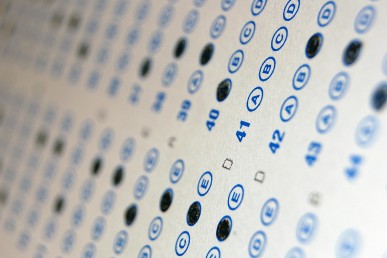UIC leads development of assessments for new science standards
Researchers from four institutions, led by the University of Illinois at Chicago Learning Sciences Research Institute, will develop a new system of classroom assessments for the Next Generation Science Standards under a $2.9 million grant from the National Science Foundation.
The four-year, collaborative grant includes investigators from the CREATE for STEM Institute at Michigan State University, the Center for Learning and Technology at SRI International of Menlo Park, Calif., and the Concord Consortium of Concord, Mass.
The Next Generation Science Standards make science classes more closely resemble the way scientists work and think. They are based on current research about the learning process that emphasizes building coherent understandings over time.
To help students succeed under the new standards, the development group aims to provide educators with the latest task templates, assessment items and lesson rubrics that utilize technology and advanced psychometric models to measure student performance.
An evaluation system created by the collaborators will focus first on the new middle school chemistry curriculum and will be piloted in classrooms in Illinois, Florida and Wisconsin. The assessments will address a key topic in physical science — matter and its interactions — by integrating content on the structure and properties of matter, chemical reactions, and energy with two scientific practices — constructing explanations, and developing models.
A recent report from the National Research Council on the development of science assessments for the Next Generation Science Standards argues that states will no longer be able to rely on single, end-of-the-year tests to monitor student progress in science. The report recommends teachers use a variety of assessments throughout the academic year.
“What we have proposed to develop and implement, with its focus on teachers’ use of assessment to support learning within the classroom, is precisely what has been recommended,” said James W. Pellegrino, distinguished professor of psychology and education and co-director of UIC’s Learning Sciences Research Institute.
The researchers say developing new assessments is important because the Next Generation Science Standards drastically change the way K-12 science is taught in school and what is expected of students at each grade level.
“The National Science Foundation’s funding of this project reflects our commitment to understanding and measuring student learning outcomes in science, technology, engineering and mathematics,” said Julio Lopez-Ferrao, the project’s program director at NSF. “Through this project, the collaborators join efforts to advance the assessment field, consistent with the vision articulated by the National Academies.”

